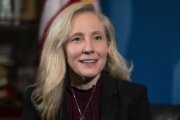Americans have long grappled with their finances.
In October 2020, a Marketplace-Edison Research Poll found that nearly half of all Americans would have a hard time handling an unexpected $250 expense. During the COVID-19 pandemic, people were wrestling with income loss, job and housing insecurity as well as the challenges associated with adjusting to social distancing. Then, as the nation came out from under the shadow of the pandemic, Americans have dealt with historically high inflation, soaring housing prices, major shifts in employment and an unprecedented opportunity to start their own business.
Thus, the need for financial advice has never been greater, but many professional financial advisors have minimum fees and net worth requirements that put help out of reach for many. Fortunately, the number of resources available to low-income and traditionally underserved communities also has never been greater. Plus, even more resources become available if one has access to an internet connection.
[READ: 6 Financial Advising Trends for 2023]
Here are several resources to find free or low-cost financial advice:
— Online education.
— Banks, credit unions and online brokerage firms.
— Employee benefits.
— Robo advisors.
— Project-based financial advisors.
— Industry pro-bono groups.
— Government services.
— Specialty groups.
— Getting started.
Online Education
The internet is filled with options for increasing one’s financial literacy.
Searching key phrases such as “how much does a mortgage cost” or “student loan debt” can yield a trove of articles if you have specific needs. Inquiries such as “how to start investing” can steer you toward beginning an investment portfolio.
The results will reveal a wealth of material. Many of the results will be from reputable organizations, but it is important to carefully consume this information as some articles and blogs are trying to sell products and services that may not be the best fit for your needs.
Additionally, social media is now filled with videos by financial advisors and influencers looking to get your attention. Some of these personalities are not licensed and the material may not meet industry regulations, so again, it is important to view their information carefully.
Banks, Credit Unions and Online Brokerage Firms
Many large financial institutions offer financial advice in conjunction with their product offerings. These may be in-person consultations, telephone or chat services, or a wide range of reading materials on their websites.
These resources are regulated, so the information available tends to be more complete than what you may find on social media. The institution is hoping that you will find enough information that you will purchase additional services or products they offer. The larger the institution, the wider the range of options that will be available. However, a smaller firm is likely to offer more personalized services.
[READ: Advisors: Help Clients Find Quality Financial Caregivers]
Employee Benefits
Rachel Fox with Sunny Day Fund, an employer-based savings plan, says, “More savings means less anxiety and more time and flexibility to focus on what’s meaningful in your life.”
Employers recognize that “fiscal fitness” is important to raising worker morale and reducing stress. In a January 2022 TIAA study, respondents indicated that they believe their company has a responsibility to help them improve financial literacy and maintain financial wellness. As a result, more companies are opting to offer financial well-being products and services as employee benefits.
Employees can check their employee handbook or ask their human resources department about benefits relating to financial planning.
Employees will find that there are many advantages to saving money on the job. Often, an employer will let employees opt to have money deducted from their paycheck and direct-deposited into a designated savings account. Some employers may also match employee contributions in their 401(k) plans up to a stated limit.
Robo Advisors
A robo advisor is a digital platform that will ask general questions about your financial picture and provide algorithm-driven financial planning services. The platforms typically offer budget planning services and low-cost investment solutions. They can be excellent for beginners who have a limited amount of funds to invest and want to learn as they go. The information offered is best suited for life events, such as college planning or saving for a home.
Project-Based Financial Advisors
In addition, some in-person financial advisors have started providing life-event planning focused on college funding, saving for a home or creating a financial plan to support other resources. These advisors are popular among young investors who are not ready for ongoing professional services but recognize the need to get quality advice.
The Financial Planning Association (FPA) has a database of financial planners that you can search according to location. On their website, you can easily filter the list to highlight fee-only planners and then look for project-planning compensation as indicated in their profiles. There is no obligation to work with a planner, so it can be worth interviewing more than one to find the right person who matches your needs.
[SEE: 10 Long-Term Investing Strategies Advisors Love.]
Industry Pro-Bono Groups
The financial industry has created many opportunities for full-service financial professionals to provide free or low-cost services to underserved clients, such as those with low income, military veterans, abuse survivors, those in bankruptcy and those who have been sidelined with a major life complication such as cancer or a natural disaster.
The Foundation for Financial Planning offers grants, technical assistance and other training resources to key industry groups so that they can offer these free and low-cost services. Among the groups, several standouts include:
Financial Planning Association (FPA). The FPA offers 80 active chapters nationally as the largest community of certified financial planners offering these services. Through the grants they receive, they are able to offer over 15,000 hours of free financial planning guidance to qualified individuals.
National Association of Personal Financial Advisors (NAPFA). Through their Consumer Education Foundation, fee-only advisors volunteer to waive their fee for qualified individuals in a volunteer program called “Advisors Give Back.”
Savvy Ladies. Founded in 2003, Savvy Ladies has provided independent, unbiased financial advice to over 25,000 women with topics ranging from family budgeting to debt management, retirement savings, student debt, career planning and divorce via blogs, webinars, hosted in-person events and a free financial helpline offering an hour of time on specific questions.
Government Programs
Services are available from federal, state and local governments to assist consumers. Some programs may base qualification on income, age and other factors.
Consumer Financial Protection Bureau (CFPB). This agency implements and enforces federal laws and regulations ensuring that banks, lenders and other financial institutions are offering consumer financial products fairly and competitively. However, they also serve as the official governmental agency offering financial advice on a wide variety of specific topics such as student debt, mortgages, planning for retirement and more.
Volunteer Income Tax Assistance (VITA). The IRS provides free tax help to those who make $60,000 or less, people with disabilities or those who may have limited English-speaking capabilities.
Tax Counseling for the Elderly (TCE). The IRS has a separate program for taxpayers age 60 and older that specializes in retirement-related issues unique to seniors, including pensions. These programs are primarily administered by the AARP Foundation’s Tax-Aide program.
Department of Housing and Urban Development (HUD). HUD provides counseling services such as advice on housing-related topics, including home loans (traditional and reverse mortgages), foreclosure, eviction procedures and credit issues.
Specialty Groups
There are many organizations that include financial planning among the other services they provide for niche markets, such as seniors and small business owners. Three important groups include:
National Counsel on Aging (NCOA). Since 1950, the NCOA has been an advocate for senior citizens in many areas that impact them, including Medicare, Medicaid and the Older Americans Act.
National Foundation for Credit Counseling. Accredited counselors in all 50 states are available to assist consumers with debt management and relief, coupled with ongoing financial education and coaching to avoid future recurrence.
Service Corps of Retired Executives (SCORE). Founded in 1964, SCORE provides free services to help small business owners. Thousands of volunteer executives help small businesses plan, launch and grow.
Getting Started
No matter what informational resource you choose to begin your financial journey, you will gain clarity faster by approaching the subject with purpose and a checklist:
Organize your paperwork. Gather copies of your payroll stubs, your tax returns and mortgage/rental documents. This will help you create a cash flow statement in order to calculate how much money you can safely spend, save and invest each month.
Create a list of assets, liabilities and cash flow. Write down everything you own and owe, as well as your monthly commitments, such as utilities. This will help you create a net-worth statement.
Access your Social Security earnings record. It is important to verify that your earnings are properly reported each year to the Social Security Administration, as this will impact the amount of benefits you receive in retirement.
Access your credit report. Federal law allows you to get a free copy of your credit report every 12 months from the three major credit-reporting agencies: TransUnion, Experian and Equifax. This will give you an opportunity to ensure that your financial information is correct and may help avoid identity theft. You will also learn your credit score and how increasing this score can reduce expenses for mortgage and car loans, credit card interest rates and even impact your ability to rent an apartment or purchase insurance.
Vet a financial professional. If you choose to work with a licensed financial professional, you can learn about their background and whether they have any consumer complaints in their past. You can find their official registration with the Securities and Exchange Commission or the Financial Industry Regulatory Authority (FINRA).
Creating a financial plan is an important accomplishment, as it sets the stage for a more secure future. Even if you cannot quite afford regular advice from a professional financial planner, it is very possible to get the building blocks in place on a limited budget.
More from U.S. News
Portfolio Rebalancing Strategies for 2023
All Eyes on Private Equity for Long-Term Returns
2023 401(k) Contribution Limits: What Advisors Should Know
Where to Find Free Professional Financial Advice originally appeared on usnews.com
Update 01/25/23: This story was previously published at an earlier date and has been updated with new information.







